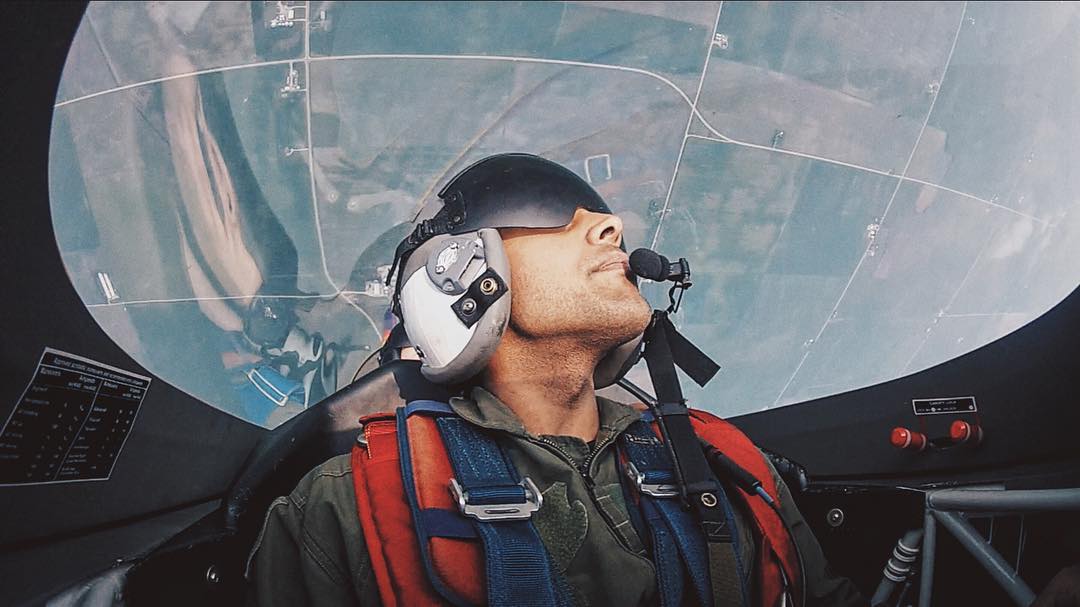
28 Aug Alumni Spotlight – David Shastry ‘ 09
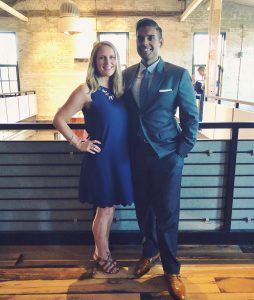 What brought you and your family to Woodstock? What years and which grades were you at Woodstock?
What brought you and your family to Woodstock? What years and which grades were you at Woodstock?
My story of ending up at Woodstock is unique just like so many of us in this community. My parents were doctors and missionaries with the Emmanuel Hospital Association. We were posted in Raxaul on the Bihar – Nepal border for a while, when they were told that they were being shifted to a small town in the mountains. We arrived in Mussoorie in 1996 when I was in 2nd grade. They came as part of the job, but we stayed because of Woodstock, the community and the environment. My parents were doctors at Landour Community Hospital for years, and went on to run a practice of their own in town, and I was as many old timers would say, a lifer. It was just me and Ben Henderson in second grade and a decade later I had the pleasure of graduating in a class of almost 70. Having walked the campus for almost 13 years, I was the oldest student in my graduating class and had the honor and immense pleasure to raise the flag as a senior on independence day.
What were your interests and passions as a student at WS?
My interests in life have always been people, design & technology. This started young for me at Woodstock. From 7th grade science fairs where I enthusiastically showcased simple mechanical machines, to later working on designing our yearbook and leading the Audio Visual + Tech Crews along with my friend Atirav, I’ve always been deeply fascinated and motivated by these three domains. Building on my love for people and community, I participated heavily in Model United Nations, and Student Council in Middle & High School. As anyone who knew me at Woodstock can attest, I was terrible when it came to sports (get the laughs out guys!), but I loved going on hikes and being outdoors with friends and staff. I fell in love with Mussoorie the day I got there as a wide eyed 5 year old, so indulging in the pristine surroundings was very important to me my whole time at Woodstock, no matter how miserable the hikes or leeches.
What did you do after Woodstock? Where did you go to college/university and what did you major in?
After Woodstock I went to DePaul University in Chicago, Illinois, USA and earned a BSc in Digital Cinema and Entertainment Law. My decision to study Digital Cinema was based on an agreement with my friend and fellow classmate Shubhashish Bhutiani at the time, where we would both study cinema so we could maybe work together professionally after college. Upon graduating from college he became an award winning filmmaker and I went into the consulting industry in Chicago. I started my career as a User Interface Designer with a large technology + design consultancy in Chicago, advising corporate, government and defense clients the world over. Rising through the ranks, I left there as the head of their Design practice in 2016. I then moved back to India and started my own boutique design advisory and consultancy firm specifically focused on crafting digital applications for enterprise and military clientele the world over. I eventually moved back to Chicago again, and now work as the Head of Product + Design for an industry leading fintech firm called Cuttlefish.
How do you feel your education and time at Woodstock helped shape your life choices, your career and the decisions you have taken?
I don’t think that there could be a better training for life itself, than my time at Woodstock. It is at Woodstock that I learned my most valuable skill: how to work well with people of diverse backgrounds. Learning how to laugh, play, work and resolve conflict with people so different than me was so helpful as I grew. I never realized the true value of my experiences at the time. There were many other learnings too. For instance, Mr. Dana Crider yelling at us in math class to “work smart, not hard” or Mr. Brian Dunn’s discourses in my philosophy classes to “dream dreams” and how “life is like the Indian road, so drive accordingly”; there have been many profound moments of learning at Woodstock. The invaluable and innumerable lessons were sometimes hidden in the mundane; a conversation with a staff member over a cup of tea as the rain danced on a tin roof, or at times in self reflection while looking out over an endless winter line on a cool fall evening. The school’s motto, Palma Non Sine Pulvere, resonated with me deeply when I learned and embraced it’s meaning years later.
This is the mindset Woodstock left me with. One where we work hard, play hard, embrace risk and capture success, indulge in the beauty of God’s good earth, strive to give back to help those around us and seek to be a vessel of change and growth wherever one goes. This essence runs through almost every decision I make in some form or another, and I can say with confidence that I wouldn’t be who I am today if not for Woodstock.
What gives you passion or motivation in your current profession or main hobby? How did you end up in this particular field?
I am driven to be in the digital product and design profession because it combines my three main areas of interest : people, technology and business. I love the tender balance that has to be struck between the objectivity of business decision making and the subjectivity and artisanal craft that comes with the design trade. This dichotomy introduces a creative tension between the two that keeps my day to day very dynamic and fluid and rarely causes me to get bored.
I also love working on big problems. One experience at Woodstock that had a profound impact on me that contributed greatly to my thirst for seeking out big problems was when an American diplomat visited our 8th grade music class. Over the course of the hour he talked about his role in the United Nations Non-Proliferation of Nuclear Weapons treaty and encouraged us to think big to solve world problems. For some reason that encounter stuck with me and I carried it as a distinct memory over the years. I seek out big problems to solve and have been granted unique opportunities to present solutions to pressing issues faced by some of the world’s largest corporations and militaries. The thrill of the challenge keeps me going!
Lastly, I am and always have been drawn to the creative arts. From my yearbook design days at Woodstock, I’ve always sought out visual solutions to complex problems. Human beings are visual in nature so finding ways to communicate more efficiently fascinates and drives me.
I ended up in design because I studied film and entertainment law. I recognized that I had the hard skills to tackle the rigors of the consulting business effectively due to my legal background, but also loved that I could explore creative problem solving through good design. A joke I make when I’m in a room full of designers and get asked similar questions, is that I entered the design profession because there is so much terrible design in the world and it’s my job to fix it!
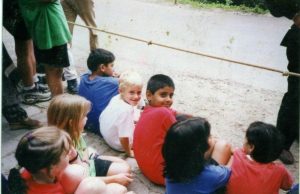
Do you have any advice for current Woodstock students? Or young alumni as they begin to make their way in the world?
I have five short pieces of advice that I learned the hard way and I believe to be valuable to young Woodstockers.
Live With Purpose. One of my favorite books is “The Art of War” by Sun Tzu. In it he says “Victorious warriors win first, and then go to war”; that quote always stuck with me. Strategy is a very important part of success. Make sure you have honest conversations with yourself about the life you want to build for yourself and those you love. If you can’t visualize it and focus on it, you won’t create it. Successes don’t just happen. They take planning and careful decisions to make it happen.
Fail often, fail fast. You can’t learn if you don’t make mistakes. Do not be averse to failure; this was a mistake I made for a long time. The perfectionist in me wanted to always do things perfectly and never be wrong. Things rarely turn out perfect, and you can’t always be right. Don’t get stuck in analysis paralysis. Learn by trying and failing. It’s ok to fail as long as you do it quickly, learn your mistake, fix it and move on. Failing fast is a key part of a strategy for a life of success.
Never compromise on who you are. In a world that’s so dynamic it’s easy to get lost in the flow. Never ever let an opportunity, success, or event change who you fundamentally are. Reflect deeply on what makes you you and ensure that that part of you changes after much thought, if at all. Always focus on maintaining the integrity and character of your person, because tons of opportunities arise where you can be successful if only you compromised who you are or what you stand for. Spend time in continuous self reflection, as I’m sure you’ve done on many a monsoon day, and be true to who you are no matter what the situation.
We stand on the shoulders of giants. We are successful because of those who have come before us and cleared the way to create opportunity. Always be mindful of the many people involved in your journey and successes and focus on giving back whenever you can. Giving back doesn’t always mean money. Volunteer your time, your skills, your energy and your mind; what’s important is that you do something to contribute back to a society that’s helped you rise up.
Life’s too short to be boring. Create and live the life you want to live. Try everything, explore everywhere, and be thirsty to learn. Opening yourself up to experiences benefits all aspects of your life, personal, professional, mental, social and spiritual. Work hard and play really hard. People only know what they know, so don’t let another’s opinion stop you from pursuing a new hobby, experience or activity. The more interesting experiences you indulge in, the more enriched and easier life becomes.
Have you attended one of our alumni events? If yes, what made you decide to attend and what did you get out of it?
I originally started attending alumni events because honestly I was a poor college kid and a nice meal downtown sounded great! Jokes aside, my relations with the alumni community started to take root after just a few of these events. Whether class of 55, 87, 93 or 04, I quickly realized that I had so much in common with people I barely knew. Although separated by decades, I was fascinated by being able to laugh about the monkeys stealing our food or dwell on the nostalgia of a lazy walk around the Chukkar. Through the alumni events I have made great friends personal and professional. I’ve found new hobbies and new friends to go do them with. Most importantly, I’ve found a connection with another Woodstocker; a connection so deep and strong, forged by those mountains and pine trees, that is hard to come by elsewhere.
You volunteer with FWS and serve on the board. What made you decide to get involved and what advice do you have for your fellow schoolmates regarding getting involved?
From a young age my parents taught me the importance of charity and giving back. They themselves dedicated and continue to dedicate a lifetime of serving others through medical and missionary work. Watching them make those contributions had a profound impact on shaping my world view.
I decided to get involved with FWS because like many of you Woodstock will always hold a special place in my heart. When the annual reunion was in Chicago a few years ago, I decided to help in any way I could by joining the local planning committee. Shortly after, I was invited to join the FWS board to represent the perspectives of the younger alumni community and I was glad to accept.
My advice to those seeking to get involved with FWS or similar organizations is to please join and contribute. When I ask for contributions, I specifically mean those of time not necessarily money. The reason the Woodstock community has thrived for over a century the world over is because of continuing engagement from graduates who care about the community and our shared experiences. The future of this global community depends on alumni getting involved and re-connecting with each other and the school. If you have questions or thoughts on how you’d like to get involved, please contact me via my website (www.davidshastry.com) or any of my social channels and I’d love to chat with you.
Woodstock offers alumni the opportunity to connect through Woodstock Alumni Connect, our online professional networking platform where alumni can serve or look for mentors for each other, look for or post internships/jobs. What might make this platform valuable?
The platform is a tool just like any other; tools can’t use themselves. My strong belief after building and selling digital tools the world over is that any platform is only as good as the adoption of it by it’s target audience. If we can introduce the platform to more older alumni and encourage them to join and give back I think we can solve half the problem. The other half will come down to encouraging younger alumni to be more proactive and reaching out to connect. I’m on this platform currently and I’ve had tons of young folks reach out to me for advice, so I’m excited for the future of the platform.
I think community events like webinars, AMA (Ask Me Anything), and similar events focused on driving engagement and getting people to talk to each other will help the overall success of the platform.
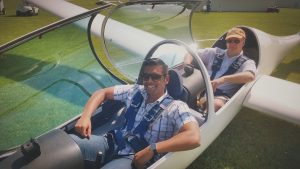

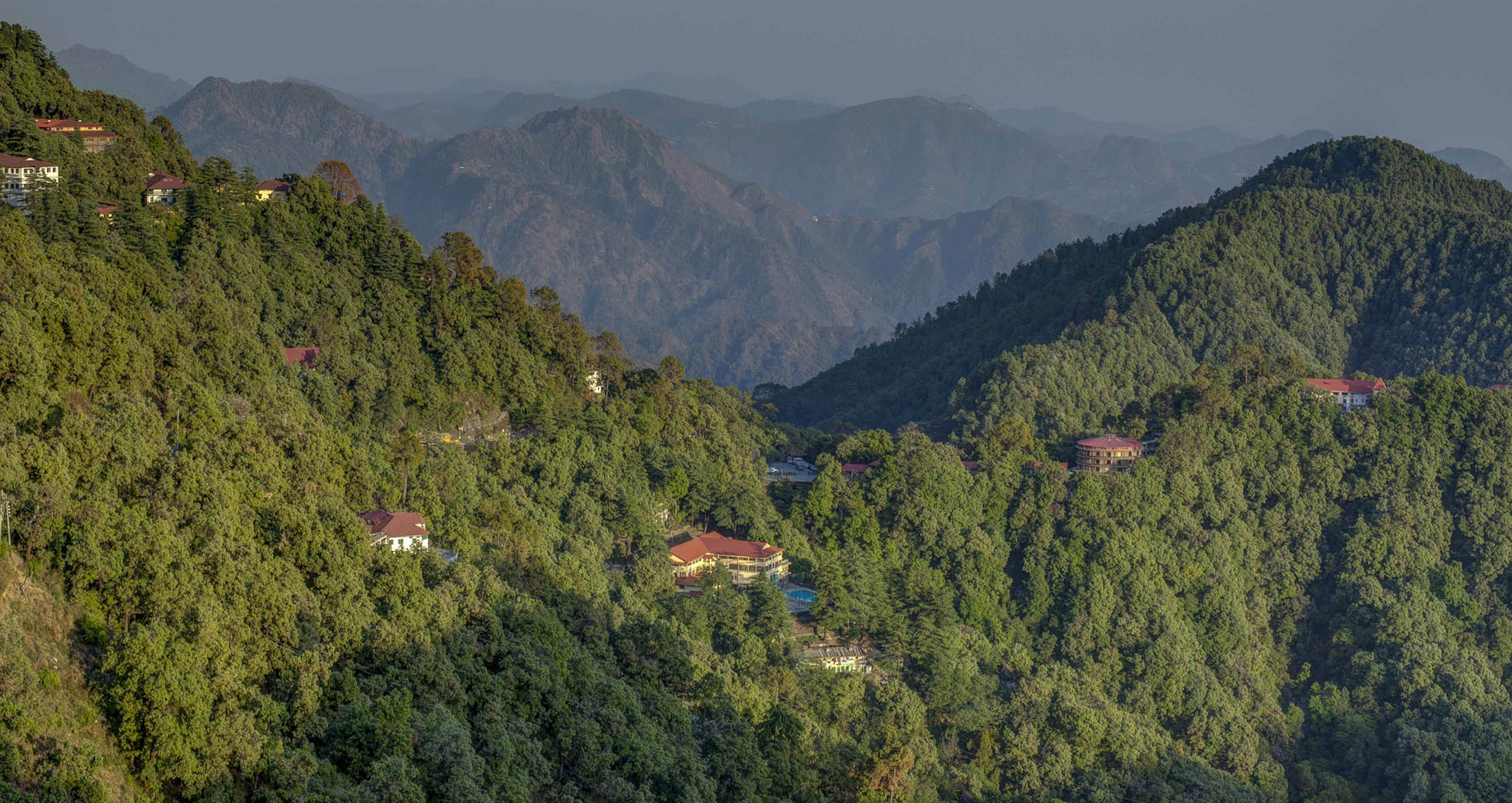




Jillian Christjansen
Posted at 09:42h, 01 SeptemberBeautiful interview! Thank you for sharing your story and perspective. I’d love a contemplative monsoon day right about now…